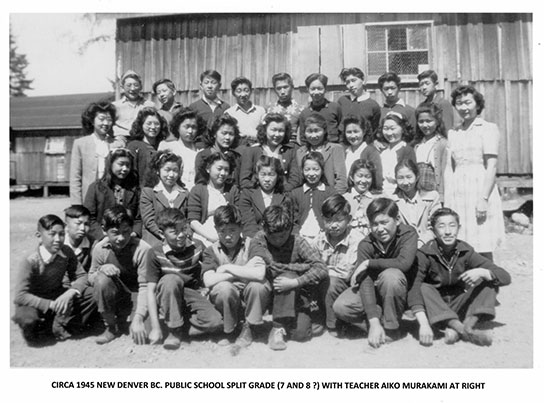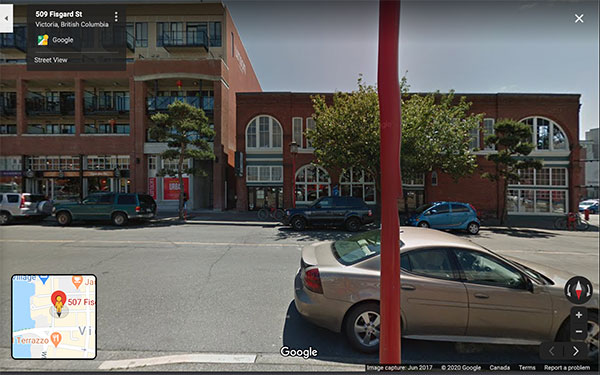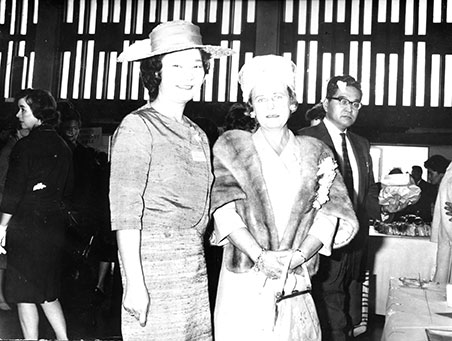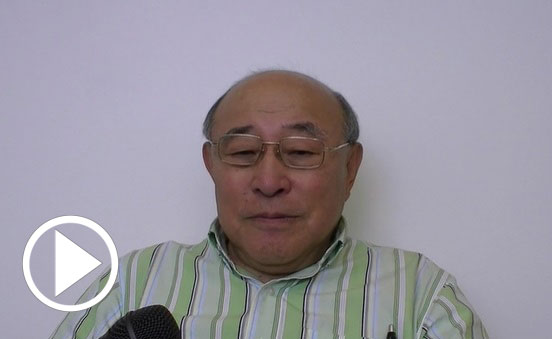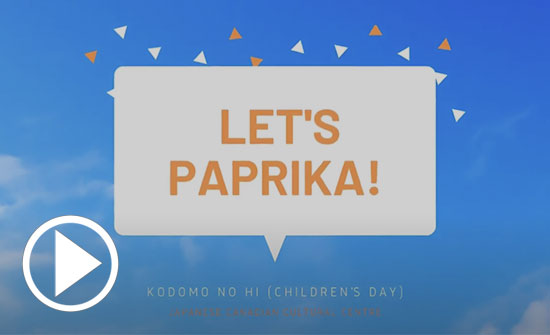JCCC's E-bulletin on Stories about this Unique Community
 JCCC's E-bulletin on Stories about this Unique Community
JCCC's E-bulletin on Stories about this Unique Community
The JCCC is pleased to bring you Kokuban - our new monthly e-bulletin that covers topics from heritage treasures to stories from this unique community.
=========================
Living Legacy: Aiko Murakami
A Group Portrait of a Split Grade Class: New Denver, British Columbia. Ca. 1945. 2011.298.02.05. (There are thirty-four students shown in this class, and one teacher, Ms. Aiko Murakami. Aiko Murakami stands in the third row on the far right, in a white dress.) George Tsushima Collection.
Aiko Murakami was born as the fifth child to Shinjiro Kondo (1880-1962) and Kinu (nee Tsuji) Kondo (1889-1977) on March 1917 in the fishing town of Steveston, B.C.. The Kondo family left Steveston for Victoria, B.C. where they lived at 507 Fisgard Street, in the Chinatown area of Victoria. Like most nisei, Aiko was studious; she graduated from Victoria High School while working as a domestic help at the same time. By 1939, at the age of 22 when Aiko was the representative for the Japanese Canadian Citizen League (JCCL) from Victoria, where she worked to promote the rights of Japanese Canadians against discriminatory legislations in Canada prior to World War II.
507 Fisgard Street on Google Map, June 2017.
When the executive order forced the removal of Japanese Canadians from their homes in the West Coast in 1942, newly married Aiko was sent to Kaslo and then to New Denver. Under the guidance of Hide (nee Hyodo) Shimizu, who was the only fully accredited teacher, 250 niseis who had high-school and up to university education were recruited to be trained and then teach in the internment camp. Aiko was one of the distinguished nisei teachers during the war and eventually promoted as the New Denver Orchard School’s principal. The schooling system established in the eight internment camps for Japanese Canadians was crucial in aiding the younger generation of Japanese Canadians to find work or continue their education after the war despite the barriers placed onto the community. Education was in many ways providing a sense of normalcy and structure for many during the war period. For Bob Takagi who was interned at the New Denver internment camp during his teens, going to school was his best memory of internment.
After the war, Aiko and her husband, Dave moved to Toronto. Aiko continued to better her work prospect by enrolling in Ryerson Institute of Technology (currently Ryerson University). In 1955, Aiko started working at the Daiichi Bushan Kajisha (currently known as Mitsui and Company) where she worked for 27 years until her retirement.
1964 Bazaar At The First Japanese Canadian Cultural Centre located at 123 Wynford Drive; Toronto, Ontario with Aiko Murakami identified as the person on the left with a large brimmed hat, 2001.7.189. JCCC Original Photographic Collection.
Between the 1950s to 1980s, Aiko was heavily involved with the Japanese Canadian community in Toronto. She was the president of the Toronto Nisei Women’s Club. Members of the Toronto Nisei Women’s Club worked tirelessly to better the community including giving headway to establish a Japanese Canadian senior’s home in Toronto (Momiji Health Care Society). Aiko was also a committed member and volunteer at the newly built Japanese Canadian Cultural Centre (at 123 Wynford Drive).
In 1989, Aiko immerse herself in the Japanese Canadian community in Edmonton, Alberta by working for the National Association of Japanese Canadian (NAJC) as a field worker where she provided information on the Redress application for individual Japanese Canadians in the region. Aiko was also responsible for tracking down elderly Japanese Canadians in rural areas who qualified for the Redress settlement.
Her work for the Japanese Canadian community across Canada was recognized on June 20, 2009 at the annual event, Nostalgia Night at the Japanese Canadian Cultural Centre in Toronto. Aiko, alongside 24 Japanese Canadian teachers in the internment camps, were honoured with the Pioneer Achievement Awards.
In 2009, Aiko addressed the Canadian Race Relations Foundation. Here is an excerpt of her powerful speech:
In my 92 years I've seen some of the best and worst of Canadian Schools. Sadly, the Japanese Canadian Internment Camp Schools and the Indian Residential Schools represent what we are capable of - racially segregated schools. Canadians have come a long way since then, but we are far from perfect. Minister Wynne, in the long run, racism will live or die not because of what judges or policemen do, but because of what parents and teachers do when their children and students make decisions about other races or ethnic groups. Racism is learned - not an ethnic trait. So, as a parent, a former Enemy Alien and a former Internment Camp school principal, many thanks for your leadership in fighting racism, for fostering inclusive education and for initiating Ontario’s New Equity and Inclusive Education Strategy. Domo arigato! (Aiko Murakami addressing the Canadian Race Relations Foundation, 2009, sent by Mike Murakami)
Fast forward a decade, Aiko turned 103 in March, 2020. Even though her long-term care home is currently closed to visitors due to the pandemic, this article hopes to continue to celebrate and applaud Aiko’s decades of work for the Japanese Canadian community across Canada.
We would like to thank Mike Murakami for providing us with the accounts of Aiko Murakami’s work.
Do you have stories or accounts that you would like to share with us? Your contributions may be used in our project which will be published in a future issue of our e-bulletin. Please email us
Sedai Interview: Schooling in the internment camps
In this Sedai oral history interview, Mickey Matsubayashi talks about the scramble in putting together schooling for children in the internment camps during World War II. Since Japanese Canadians were barred from becoming accredited teachers in British Columbia prior to World War II, young nisei (second generation Japanese Canadian) who had completed their high school educational at the minimum were recruited to train and then teach in the internment camps. Listen to Mickey as he recalls schooling during the war fondly and attribute it to the work of dedicated teachers in the internment camp who made learning enjoyable.
To watch the interview, click here.
Let's Paprika: Little Hearts for a Big Movement
In the face of COVID-19, many of JCCC’s regular programs and scheduled events had to be postponed. It is the first time in JCCC’s history where we cannot act as a gathering place for our community.
Nonetheless, faithful to our motto “Friendship through Culture”, the JCCC is committed to finding ways to keep the community together despite isolation. At this time, we are excited to introduce our community project to you.
Have you heard of “Paprika”? It is a project initiated by NHK (Japan’s national broadcasting corporation) which uses a catchy song “Paprika” to bring about hope. The project, with a slogan “Sowing Seeds for Tomorrow”, simply encourages everyone, young and old, to dance and sing this song “Paprika”, as a way to uplift all who are fighting for the future. Paprika is written by a renowned Japanese musician, Kenshi Yonezu, who used his own childhood as inspiration. The lyrics describe an adult who remembers singing this song as a child, and when he hears this song, it is as if his younger self is cheering him on.
The Paprika Project and this song have been embraced throughout the world. On YouTube, there are numerous videos showing individuals, groups, communities and organizations joining in the movement. Through this song, many have campaigned for hope, not only for themselves, but for the dreams of everyone across the world.
Thanks to the support of many families in the Toronto Japanese Canadian community, the JCCC was able to create a Paprika video showcasing the energy and positivity of the children in our community. Children have this wonderful ability to surpass whatever circumstances that come and remain cheerful. Their smiles and energy carry such resilience and motivate us to keep moving forward. We hope that this video would not only bring you sunshine, but also give you a wonderful sense of optimism.
We sincerely thank all the children and families for working so hard to inspire us during this time.
To watch the video, click here.
Please let us know your thoughts on this video at newsletter@jccc.on.ca.
「小さな力が、大きな原動力に」ーJCCCのパプリカプロジェクト
COVID-19の感染拡大防止のため、JCCCで予定されていたプログラムやイベントが延期となり、また外出自粛が続き、ボランティアの方々やトロント日系コミュニティーの方々とともに過ごす時間が少なくなってしまいました。
JCCCでは、このような状況の中でも、Friendship through Cultureという精神を通して、みなさまとつながりが持てるようなプロジェクトを検討し、提供してまいりました。
「NHK 2020応援ソングプロジェクト」をご存じでしょうか? 2018年にNHKが「あしたにたねをまこう!」というキャッチコピーのもと、未来に向けて頑張っているすべての人を応援していくことをコンセプトに掲げたプロジェクトです。このプロジェクトは、子供から大人まで「パプリカ」という曲を歌い踊るというシンプルなものです。「パプリカ」は、日本で現在大きな支持を集めているミュージシャン米田玄師氏により作詞、作曲、プロデュースされた楽曲で、彼自身の幼少期の経験をもとに作られました。子供の頃この曲を歌っていたことを思い出して、大人になった時、子供のときの自分に応援される「応援ソング」という内容です。
現在、Youtubeなどでは、このプロジェクトに賛同した方々の数々の動画を見ることができますが、どの動画をみても、この曲を歌って踊ることで、自分自身だけでなく、世界中の人々の夢を応援しようという気持ちが伝わってきます。
今回、JCCCではトロントの日系コミュニティーの多くの皆様にご協力いただき、子供たちが元気いっぱいに歌って踊る動画をたくさんいただくことができました。どんな環境に置かれても途切れることのない子供たちの笑顔とエネルギーは、いつでも私たちを和ませ、時に前に進む力となるでしょう。そのような魅力を、この動画を通して感じてもらえたいと思っております。動画はこちら
ご協力いただきました皆様に心よりお礼申し上げます。
ご感想をお待ちしております。
newsletter@jccc.on.ca.
 Want to post your article?
Want to post your article?Your artcle is welcome! Please email us with a subject 'JCCC Bulletin'
JCCC- Posts : 444
Join date : 2009-02-26
 Similar topics
Similar topics» [NEW] JCCC's E-bulletin on Stories about this Unique Community
» JCCC's E-Bulletin: Nikkei Stories, JCCC Karaoke Club and Fireworks
» [JCCC] KOKUBAN - Stories of Resilience
» Stories of yesterday, today, and tomorrow
» 11 Stories on Distanced Relationships: Contemporary Art from Japan
» JCCC's E-Bulletin: Nikkei Stories, JCCC Karaoke Club and Fireworks
» [JCCC] KOKUBAN - Stories of Resilience
» Stories of yesterday, today, and tomorrow
» 11 Stories on Distanced Relationships: Contemporary Art from Japan
Permissions in this forum:
You cannot reply to topics in this forum|
|
|



